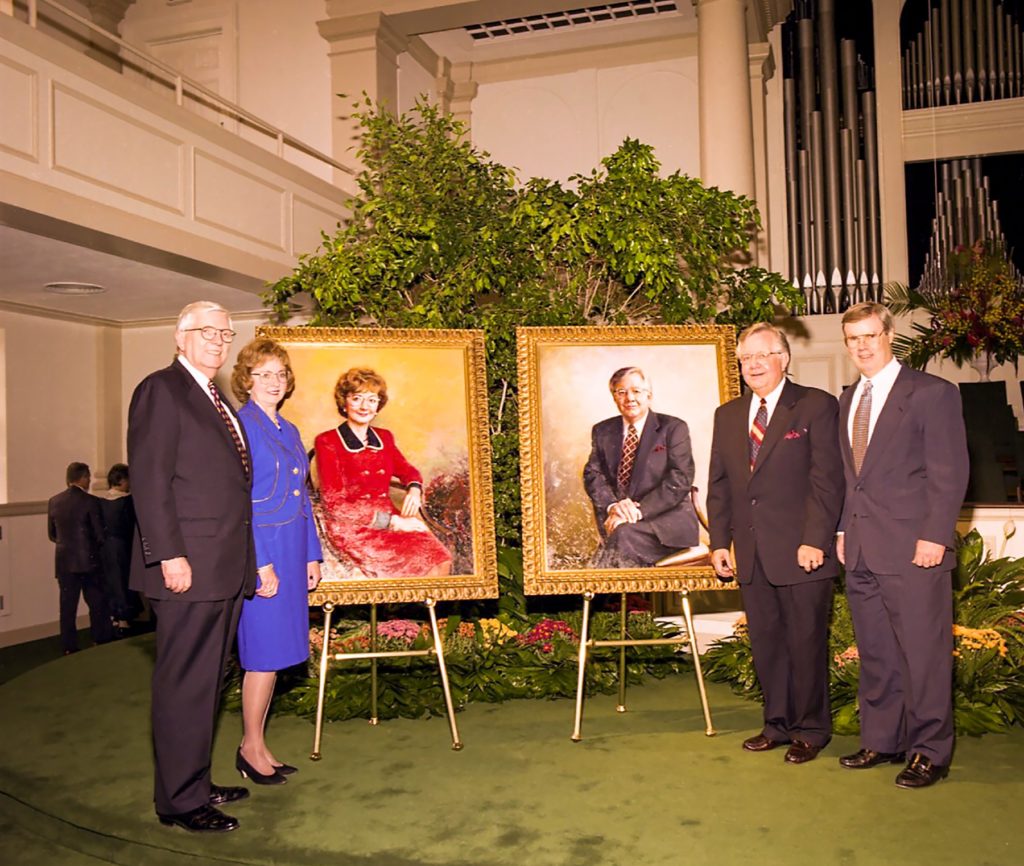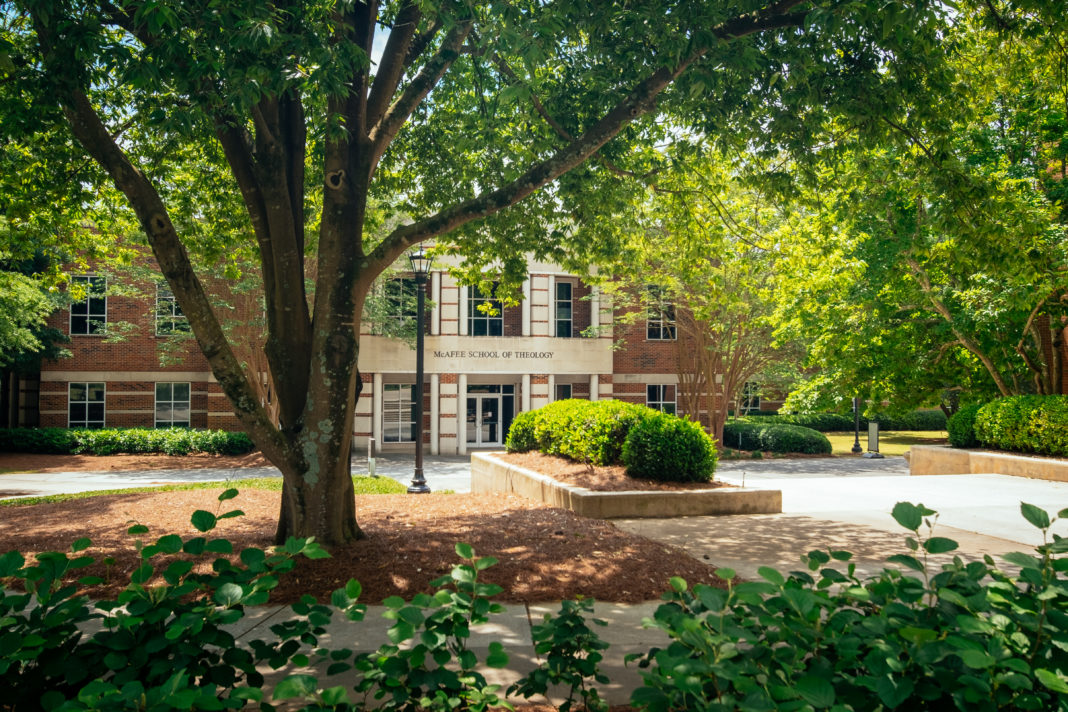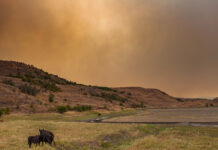Before the McAfee School of Theology opened in fall 1996, the founding faculty members faced their first challenge: They needed to create the school.
With only seven months before the arrival of the inaugural class, they sat around a table with then-Dean Dr. Alan Culpepper, eager to develop the foundation that would guide the school’s formation and future growth.
At one point, Dr. Kirby Godsey, Mercer University’s president at the time, entered the room. He picked up a piece of chalk.
“He said, ‘Here’s a piece of chalk. There’s an empty chalkboard.’ He put it on the table and said, ‘Go build a school,’” recalled Dr. Loyd Allen, a founding faculty member and current professor of church history and spiritual formation.
Dr. Godsey’s words were meaningful to those in the room. He was giving them the freedom to dream and design a theological school that was unlike any other in Georgia and different from most seminaries operated by the Southern Baptist Convention at the time.
Now, 25 years later, the School of Theology has trained nearly 1,000 people who received God’s call to ministry. The school has conferred 932 degrees and has had alumni serve on all seven continents.
“Since we were starting from scratch and we had administration that would help us, we had the opportunity to do something new,” Dr. Allen said. “And some of that ability to dream big has continued and will be necessary in the next 25 years.”
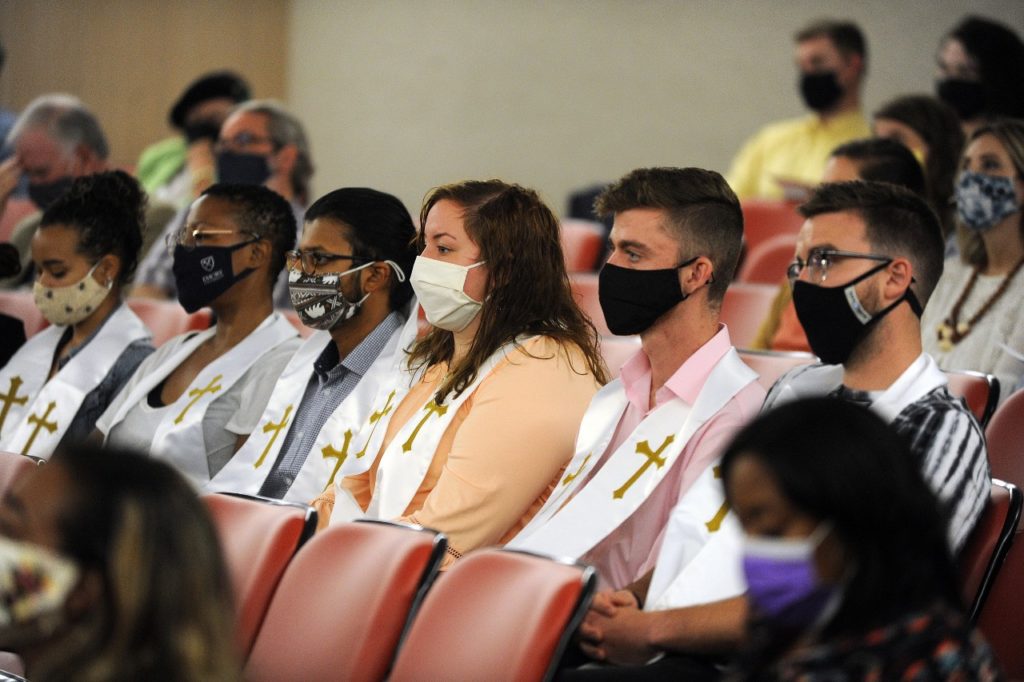
A new school is born
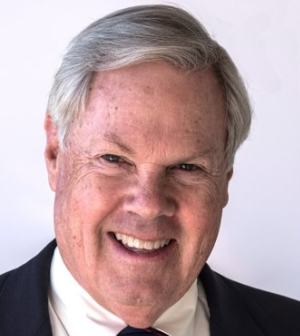
The idea for a theological school at Mercer goes back to its early years.
Established in 1833, Georgia Baptists founded Mercer with the purpose of preparing people for the ministry. When Jesse Mercer left his $40,000 estate to the University in 1841, he did so with theological education specifically in mind.
But it wasn’t until the 1990s that the idea started to fully form and develop.
Moderate Georgia Baptist pastors and church leaders were concerned about the increasingly fundamentalist nature of the Southern Baptist Convention, which trained pastors through its seminaries.
“We needed a new school because there were major changes that were going to take churches and the Southern Baptist Convention in a direction that the more moderate leadership didn’t want to go,” Dr. Culpepper said.
In 1994, Mercer’s Board of Trustees approved plans to establish a theology school at the University. It would be the first Baptist seminary in Georgia and had the support of the Cooperative Baptist Fellowship, a group of moderate Southern Baptist churches.
Dr. Culpepper was hired as dean, and Dr. Allen, Dr. Nancy deClaisse-Walford, Dr. Paul Duke and Dr. Ron Johnson were brought on as founding faculty.
“In the spring of 1996, the inaugural faculty piled in the dean’s car and traveled all over Georgia, meeting with pastors of churches who were eager to find out what this new school was all about,” said Dr. deClaisse-Walford, who is currently the Carolyn Ward Professor of Old Testament and Biblical Languages. “We liked to call it our ‘dog and pony show.’ Those trips, spending hours together in the car, were a rich time of building the faculty and continuing to form the school.”
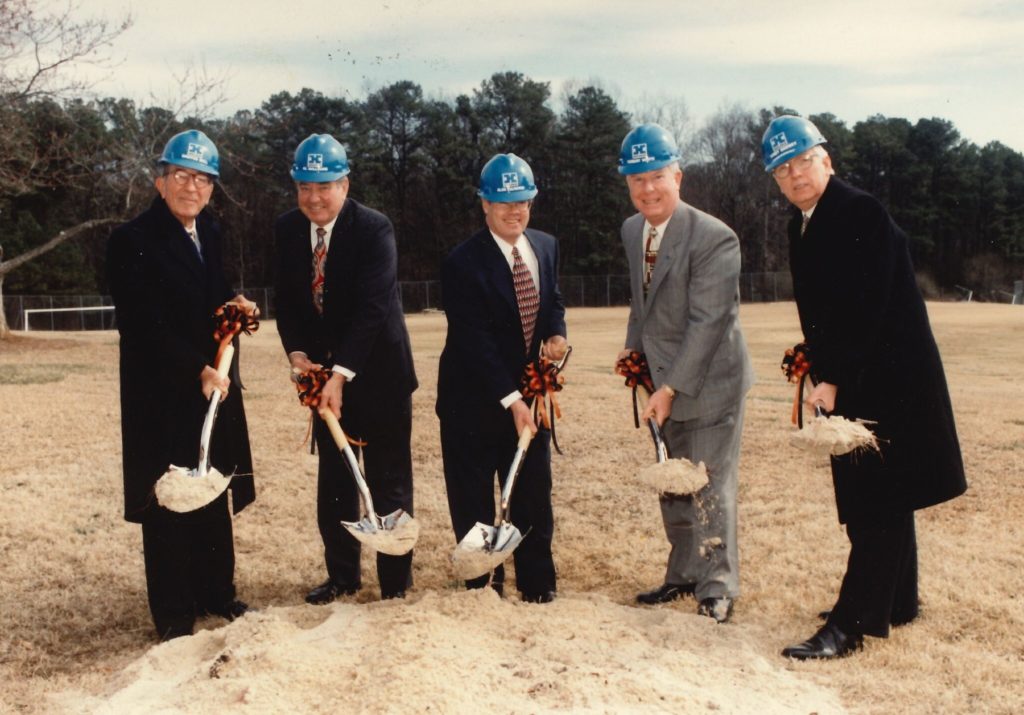
Knowing, doing and being
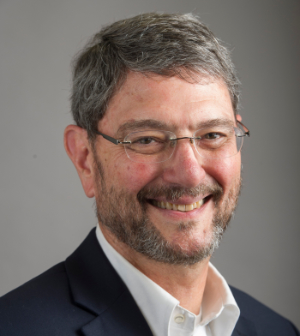
In February 1996, Mercer broke ground in Atlanta for the School of Theology building. When 44 students began their studies at the new school in the fall, they attended classes in various spaces across campus.
Supported by a $10 million endowment from James and Carolyn McAfee, for whom the school is named, the School of Theology building opened in January 1997.
The curriculum developed by the founding faculty focused on three learning objectives: knowing, doing and being.
For example, Dr. Culpepper said, a New Testament course looking at the Gospel of John would answer the questions, “What do they need to know about John? What are they going to do with this in their ministry — teaching, preaching, theology? And we’re not just studying ancient history here, we’re studying scripture, so what kind of experience — impact — should the Gospel have on them, and how do we foster that?”
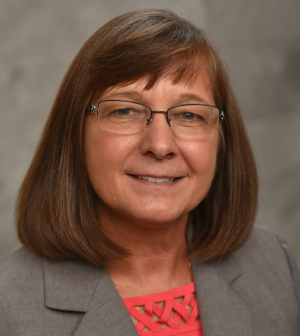
Initially, the school offered only a Master of Divinity degree. Today, it offers three master’s degrees, one doctoral degree, a graduate certificate and multiple combined degree programs.
Over the years, the student body has become more diverse. Of the first 44 students, about one-third were women and one was Black, Dr. Culpepper said. Now, 143 students are enrolled this fall, and 56% of them are women, and 50% are non-white, with most of the non-white students being Black.
The school is known for its strong sense of community among students, faculty and staff.
“The richness of the classroom experience with all those students through the years has been amazing for me, and some of them have become lifelong friends,” said Dr. deClaisse-Walford.
Dr. deClaisse-Walford and Dr. Allen, the school’s two remaining founding faculty members, are retiring after this academic year.
“When I got here and I sat down with the quality of the faculty we had and we began to talk about what we thought would make a good theology school, it was an exciting time for all of us,” Dr. Allen said. “For years I could say with sincerity, ‘When I get up in the morning and I’m going down to the Mercer campus in Atlanta to teach at McAfee, I feel like I won the lottery.'”
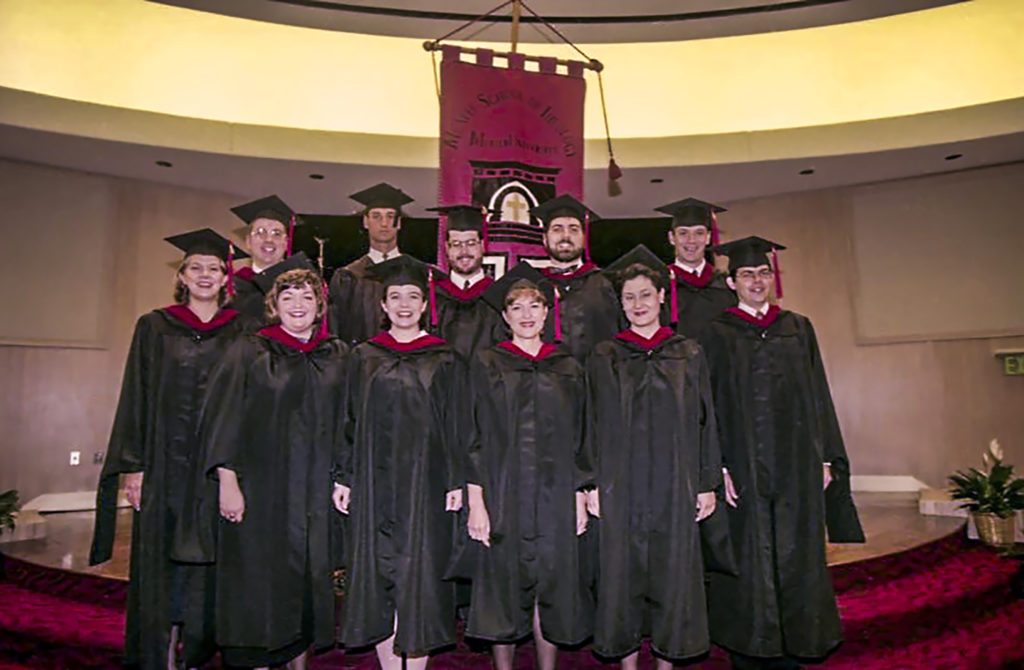
A changing landscape
Today, the School of Theology is on the precipice of change. The church as an institution is changing, both globally and in the North American context, current Dean Dr. Greg DeLoach said.
“As you’re having students enter to prepare for ministry, there’s continued need to adapt and change how you’re preparing these students for ministry because the world is changing, and churches are changing,” he said. “Now granted, that’s always been the case. But I think that for the last two decades it’s universally agreed that churches are going through seismic change, and in particular in the last five years, they’ve gone through tremendous change, and the pandemic itself has only accelerated that.”
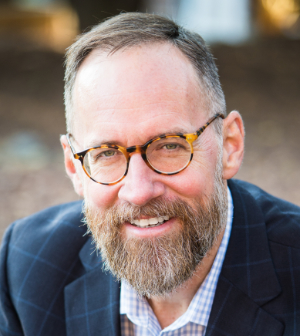
When the School of Theology opened, churches, particularly in the Deep South, were still largely the center of communities, and people structured their lives around the rhythm of the church’s schedule, including Sunday morning worship, Sunday afternoon or evening activities, and Wednesday night fellowship. Increasingly, schedules don’t support that, Dr. DeLoach said.
In addition, there are people who grow up in the church and leave because they are disillusioned by it, people who have never been in a church and have no desire to go to one, and people who just disappear from the church, not because they’re mad but for other reasons, he said.
“So, the whole cultural fabric and structure has definitely changed in 25 years,” he said.
Theological education is changing as well.
One change is a movement toward de-centering seminaries and re-centering congregational life, Dr. DeLoach said.
“Twenty-five years ago, the traditional pattern would be congregations would send students to seminary to get educated, and then we would educate said seminarians and send them back to the world to do their thing. So, the seminary still was kind of centralized,” he said. “And now seminaries, not just McAfee but across the board, are having to lean into and listen better to what’s actually happening beyond the academy and rethink their whole structure of what is needed to educate, to holistically educate, ministers.”
Theological education needs to listen more to what congregations and places of ministry need and respond, he said.
“It’s not always as easy as anticipating, ‘This is what you need, so we’re going to educate you to do what you need,’” he said. “But it’s more about, ‘Well, let’s listen. What do you need? Maybe you don’t need all that we’ve been pouring in, but you need this skill set.’”
Finally, the ways in which people learn are changing. In the past, seminary was a residential experience, but increasingly, programs are being offered online.
In the early 2000s, the School of Theology began offering online classes. In 2016, the school debuted its first fully online degree, a Master of Arts in Christian Ministry, and this year it welcomed the first class of students for its online Master of Divinity degree. Mercer is the first and only research university in the Southeast to offer a fully accredited and fully online Master of Divinity.
The School of Theology will tackle these changes and more as it continues to serve students, churches and faith communities in the many years to come.
